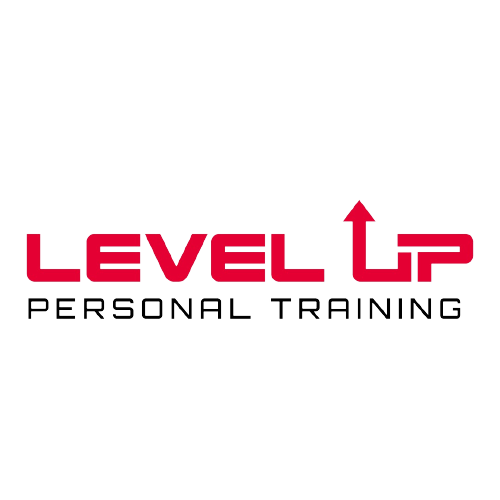
Is Keto Right For You And Your Fitness Journey?
Your diet plays an important role for fitness, performance and achieving optimum results. One diet that’s had a lot of coverage in recent years is the keto (ketogenic) diet, characterised by its low-carbohydrate, moderate-protein and high-fat intake. Initially developed for medical reasons, its application to athletic performance, particularly in the gym, has sparked curiosity and debate amongst the fitness world.
This blog will look at the impact adopting a keto lifestyle might have on your workout journey.
The Basics of A Ketogenic Diet
We’ve all heard of a keto diet, but what does it actually mean?
In simple terms…
A ketogenic diet focuses on minimal carbohydrate intake which pushes your body into a state of ketosis. This is when your body shifts its primary energy source from carbs to ketones which it gets by breaking down the fat cells in your body.
Transitioning to a keto diet isn’t always plain sailing, with many people experiencing what’s commonly referred to as the ‘keto flu’. During this initial stage you might feel sluggish as your body adapts to its new fuel burning state. The thing to remember is that it won’t last forever. You might experience a dip in your performance for around 1 week to a month but once your body adapts, that’s when the benefits begin.
The Benefits of Keto for Gym-Goers
- Improved Endurance: Once fully adapted to a ketogenic diet, your body will become proficient at tapping into fat for fuel instead of relying on carbs. This use of a sustainable energy source can lead to improved endurance during longer workout sessions such as steady-state cardio (walking/jogging) or endurance training.
- Stable Energy Levels: Unlike the spikes and crashes associated with high-carb diets, ketosis provides you with a more consistent energy supply giving you more sustained energy levels for improved focus and enhanced performance in the gym.
- Muscle Preservation and Recovery: Despite its moderate protein intake, research suggests that when combined with resistance training a keto diet can promote lean muscle gains. Ketones also possess anti-catabolic properties that help reduce muscle breakdown during intense gym sessions and help with post-workout recovery.
Which Exercises Work Best With Keto?
There are certain types of exercise that work best alongside a ketogenic diet and your body’s altered energy source, these include:
Low-Intensity Cardio – Walking is an excellent low-intensity exercise that complements the fat-burning focus of a keto diet perfectly. It’s gentle, sustainable and contributes to your overall well-being.
Weight Training – Performing weight training with a focus on compound movements, such as squats, deadlifts and bench presses whilst in ketosis can help preserve and build lean muscle.
Yoga and Pilates – Activities such as yoga and pilates that emphasise flexibility, balance and mind-body connection are a valuable addition to any exercise routine to promote excellent form.
Cycling – cycling at a moderate, sustainable pace is a great aerobic activity which aligns with the energy demands of a keto-adapted body.
Swimming – swimming provides a low-impact, full-body workout which makes it an excellent option alongside your strength-training routine for all round fitness on a keto diet.
Body Weight Exercises – including push-ups, pull-ups and body-weight squats can be effective in maintaining and improving strength without relying heavily on carbs for energy.
Remember, everyone is different, and your response to certain exercises on a ketogenic diet will vary to someone else’s. At first you may find that high-intensity exercises, such as HIIT, a challenge as your body adjusts, but as it gets used to using ketones for energy your performance should steadily improve.
The Pro’s and Con’s of a Keto Diet
If you’re considering a ketogenic diet, it’s important to know the pro’s and con’s and seek advice from a healthcare professional or a fitness and nutrition expert before making the switch.
Here’s some useful information about the pro’s and con’s of a keto diet to help you make an informed decision about what’s right for you:
| Pro’s | Con’s |
| One of the primary benefits is its efficacy in weight loss, as the body shifts to burning stored fat for energy. | The transition may lead to the “keto flu,” with symptoms like fatigue, headaches, and irritability. |
| Provides a consistent and steady supply of energy, avoiding the energy spikes and crashes associated with carb-heavy diets. | Restricting certain food groups may increase the risk of nutrient deficiencies, requiring careful planning or supplementation. |
| Many individuals report enhanced mental clarity and focus, attributed to the brain’s utilisation of ketones. | Some may experience constipation or digestive problems because of lower fibre intake from limited carb sources. |
| Can contribute to stabilised blood sugar levels, making it beneficial for those with insulin resistance or diabetes. | Maintaining a strict keto diet over the long term can be challenging, potentially leading to cravings and adherence issues. |
| The satiating nature of fats and proteins can help control appetite and reduce cravings, potentially aiding in weight management. | The limited variety of foods can be challenging, affecting social occasions and overall meal enjoyment. |
| Contrary to misconceptions, some studies suggest improvements in cardiovascular markers, including an increase in “good” HDL cholesterol. | High-intensity or explosive workouts may be affected during the initial stages of keto adaptation. |
| Potential anti-inflammatory effects may benefit individuals dealing with inflammatory conditions. | Extremely rare but important to note, diabetic ketoacidosis (DKA) can occur in uncontrolled diabetes, which differs from nutritional ketosis. |
| Enhances metabolic flexibility, allowing the body to efficiently switch between burning carbs and fat for energy. | Socialising around food can become complex, requiring planning and communication to navigate carb-heavy social occasions. |
Striking a Balance for Optimal Performance
Adopting a ketogenic diet offers certain advantages, but it’s not a one–size-fits-all solution. Like any dietary approach its efficiency depends on your individual goals, preferences and how your body responds. Ultimately, the key lies in finding a nutritional plan that aligns with your body’s needs, supports your training and promotes your overall health and wellbeing.
Whether you choose to adopt a keto lifestyle or explore other dietary approaches; consistency, moderation and listening to your body are essential to your fitness journey and becoming a happier and healthier you.
Ready to Level Up your fitness journey? Whether keto or another approach, I can tailor a plan to your individual needs and goals for optimal results. Contact me for personalised advice today!

